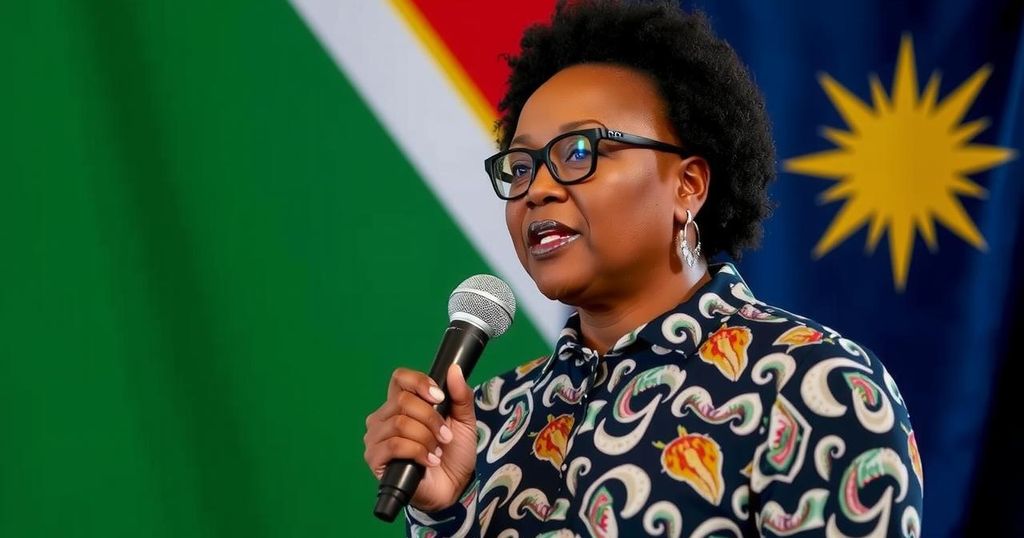Namibia is on the verge of potentially electing its first female president, Netumbo Nandi-Ndaitwah, who currently leads the election with 54.82 percent of the votes counted. However, the election has faced significant disputes due to technical difficulties and accusations of irregularities by opposition parties, which threaten the legitimacy of the process. The outcome could lead to important changes in leadership in a country grappling with economic challenges and political disenchantment.
Namibia is poised to potentially elect its first female president, Netumbo Nandi-Ndaitwah, as the election results from last week’s contested vote continue to unfold. With 65.57 percent of votes counted, Nandi-Ndaitwah, representing the governing South West Africa People’s Organisation (SWAPO), currently leads with 54.82 percent of the total vote. However, the election process has experienced delays due to technical issues and allegations of irregularities, which may necessitate a run-off election if she does not surpass the 50 percent threshold.
The election faced numerous operational challenges, including ballot paper shortages and extended voting periods, leading to significant delays in the counting process. Approximately 73 percent of the nearly 1.5 million registered voters participated in the election, yet the main opposition party, the Independent Patriots for Change, led by candidate Panduleni Itula, has contested the legitimacy of the election, labeling it as a farce. The matter is further complicated by the opposition’s claims of widespread irregularities, prompting intentions to challenge the results legally.
The historical context reveals that SWAPO has presided over Namibia since it gained independence from South Africa in 1990. While the party has steered the nation towards stability, persistent socio-economic challenges, particularly among the youth, have led to a growing discontent. The result of this election not only sets the stage for potential changes in leadership but also reflects the undercurrent of dissatisfaction among the electorate toward the ruling party.
Namibia, known for its relatively stable democratic history since gaining independence from apartheid South Africa, is currently navigating a contentious electoral atmosphere. Recent events surrounding the presidential elections, particularly the possibility of electing the country’s first female leader, Netumbo Nandi-Ndaitwah, have been overshadowed by allegations of electoral malpractice and dissatisfaction with the existing political order. The election, which has been mired in technical difficulties and claims of irregularities from opposition parties, highlights the complexities of governance in a nation facing high unemployment and socio-economic disparities.
In summary, Namibia’s presidential election poses significant implications for its political landscape, particularly with the potential election of its first female president, Netumbo Nandi-Ndaitwah. However, the electoral process is marred by controversies, including opposition claims of irregularities and a contested legitimacy. As the nation awaits the final results, the situation raises questions about electoral integrity and the future direction of Namibian politics amidst growing public discontent.
Original Source: www.aljazeera.com







